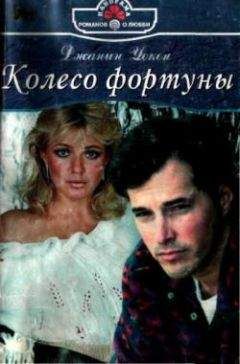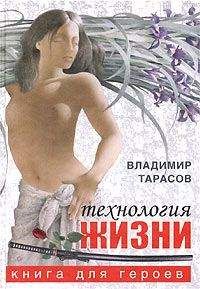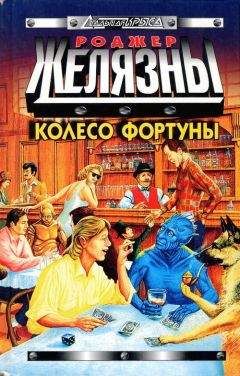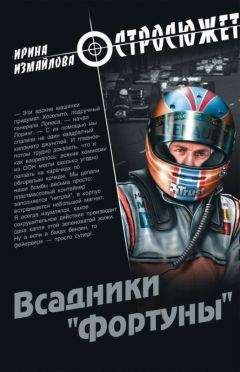Антон Нестеров - Колесо Фортуны. Репрезентация человека и мира в английской культуре начала Нового века
612
Укажем здесь второе издание, объединившее обе поэмы под одной обложкой: The first anniuersarie. An anatomie of the world. Wherein, by occasion of the… death of… Elizabeth Drury the frailtie and the decay of this whole world is represented. London, Printed by M. Bradwood for S. Macham, 1612.
613
Gosse E. The Life and Letters of John Donne. Vol. 1. Gloucester, MA: Peter Smith, 1959. P. 302.
614
Saunders JW. The Stigma of Print: A Note on the Social Bases of Tudor Poetry// EIC 1, 1 (January 1951). P. 139–64; об этих представлениях см. также: Helgerson R Self-Crowned Laureates: Spenser, Jonson, Milton, and the Literary System. Berkeley, 1983. P. 108–109; Newton R. C. Jonson and the (Re-)Invention of the Book/ Classic and Cavalier: Essays on Jonson and the Sons of Ben. Eds. Claude]. Summers and Ted-Larry Pebworth. Pittsburgh, 1982. P. 31–55.
615
Beat P. (comp.) Index of English Literary Manuscripts. Vol. 1. London, 1980. P. 245.
616
Gosse E. The Life and Letters of John Donne. Vol. 2. Gloucester, MA: Peter Smith, 1959. P. 224.
617
Иаков IV Шотландский (1567–1625) и Иаков I Английский (1603–1625).
618
[Электронный ресурс] дата обращения: http://www.mostweb.cc/Classics/Walton/LifeOfDrDonneThe/LifeOfDrDonneThe4.html
619
Собственно, в ту эпоху сам жанр биографии подразумевал повествование о восхождении человека к некоей вершине: к положению государственного мужа, к святости. Сочинение стихов не могло считаться достижением какой-либо духовной высоты, поэтому, например, во многих биографиях Сидни, написанных вскоре после его смерти, о его поэтических опытах говорится только вскользь, если вообще упоминается. (См.: Pask Kevin. The «marines state» of Philip Sidney: pre-scripting the life of the poet in England// Criticism: a quarterly for literature and arts (Wayne State University, Detroit, MI). Volume 36, issue 2 [Spring 1994]. P. 163–184.) Этот подход к телеологии жизни можно увидеть и много позже, например, в известных словах графа Уварова о Пушкине: «Писать стишки – еще не значит проходить великое поприще!» В словах этих звучит не оскорбительное пренебрежение поэтическим гением, но – иное представление о жизненных ценностях.
620
Укажем, прежде всего, на основательную монографию: Linden Stanton J. Darke Hierogliphics: alchemy in English literature from Chaucer to the Restoration. Lexington: University Press of Kentucky, 1996. Кроме того см.: Crashaw E. Hermetic Elements in Donne's Poetic Vision// John Donne. Essays in Celebration. (Ed. by A. J. Smith). London, 1972. P. 324–348. Duncan EH. Donne's Alchemical Figures//Journal of English Literary History, 1942. P. 269–271; Fressero John. Donne's «Valediction: Forbidding Mourning»//Essential Articles for the Study of John Donne Poetry. (Ed. by J. R. Robert). Hamden, 1975. P. 279–304; Linden, Stanton]. Alchemy and Eschatology in Seventeenth-Century Poetry// Ambix. The journal of the Society for the Study of Alchemy and Early Chemistry. Vol. 316 Part 3 (1984). P. 102–24; Murray WA Donne and Paracelsus: An Essay in Interpretation// Essential Articles for the Study of John Donne Poetry. (Ed. by J. R. Robert). Hamden, 1975. P. 125; Sandler Lynn V. Relations between alchemy and poetics in the Renaissance and seventeenth century, with special glances at Donne and Milton// Ambix. The journal of the Society for the Study of Alchemy and Early Chemistry. Vol. 24, Part 2, July 1977. P. 69–76; Головин E. Франсуа Рабле: алхимический вояж к Дионису//Литературное обозрение. 1994, № 3–4. С. 26–32.
621
Нестеров А Символический язык алхимии и поэтика Джона Донна// Вопросы филологии. 2000, № 2 (5). С. 60–68; Нестеров А Джон Донн «алхимический»// Развитие средств массовой коммуникации и проблемы культуры. Материалы научной конференции. М., 2000. С. 151–157.
622
A treatise against iudical astrology. Written by John Chamber, one of the Prebendaries of her Majesties free Chapell of Winsor, and Fellow of Eaton College. Printed at London by John Harrison at the signe of the Grey-Hound in Pater-noster Row. 1601.
623
На рубеже XVI–XVII вв. типография, руководимая в ту пору Кристофором Плантеном, активно издавала сборники эмлем. Среди самых известных изданий такого рода назовем лишь: Les Devises heroiques, de M. Claude Paradin, chanoine de Beauje, du Seigner Gabriel Symeon, et autres aucteurs. Antwerpen: Christopher Plantin, 1567. С 1610 г. типографией стал управлять внук Кристофора Плантена Ян Морет (1564–1640), близко друживший с Рубенсом еще со школьной скамьи, и многие гравюры для издававшихся им книг делались Петером Паулем Рубенсом. См.: Петер Пауль Рубенс. Письма. Документы. Суждения современников. М., 1997. С. 400.
624
Praz Mario. Studies in Seventeenth Century Imagery. Roma, 1975; Schone A. Emblematic und Drama im Zeitaler des Barock. Miinchen, 1964.
625
Russel Daniel S. Perceiving, seeing and meaning: emblems and some approaches to reading early modern culture/ Aspects of Renaissance and Baroque Symbol Theory 1500–1700. Ed. by Peter M. Daly and John Manning. New York, 1999. P. 79–80.
626
Eadwi Gospels, Canon Table, fol. 9v Hanover, Kestner-Museum. Воспроизведено в: Klibansky R, Panofsky E., Saxl F. Saturn and Melancholia. London, 1964. 111. 105.
627
MS Cotton. Tib. С VI, fol. 7v Воспроизведено в Klibansky R, Panofsky E., Saxl F. Saturn and Melancholia. London, 1964. 111. 106.
628
Friedman John Block. The architect's compass in creation miniatures of the latter middle ages/ Traditio. Studies in ancient and medieval history, thought and religion. Vol. XXX, 1974. P. 419–420.
629
Bible Moralisee. MS. 1779, fol. Iv Vienna, Oesterrichishe Nationalbibliotek. Воспроизведено: Roob Alexander. The Hermetic Museum, alchemy & Mystiscism. Koln, London, New York: Tashen, 1997. P. 631.
630
Две другии части находятся в: Парижской национальной библиотеке (222 листа) и Британской библиотеке (178 листов).
631
Holcam Bible. British Museum Add. 47682 fol. 2. Воспроизведено: Friedman John Block. The architect's compass in creation miniatures of the latter middle ages/ Traditio. Studies in ancient and medieval history, thought and religion. Vol. XXX, 1974. Fig. VIII, plates between pages 426–427.
632
Frideman. Op. cit. P. 420.
633
Привлекая разнородный по времени своего создания материал для уточнения иконографии, мы исходим из того, что более поздние стадии бытования какого-либо образа, его изводы, являясь иным по отношению к первичному изображению (или тексту), позволяют уяснить некоторые особенности образного ядра, присущие ему изначально. Иначе говоря: более поздние слои образной системы можно, с крайне высокой долей осторожности, рассматривать как комментарии к ее более ранним стадиям и состояниям. Если бы дело обстояло иначе, мы имели дело не с изводом (то есть модификацией или перетолкованием образа), а – с иным образом. Взаимодействие символического и смыслового ядра с новыми культурными полями вскрывает потенции, имплицитно присущие этому ядру, но до того эксплицитно не проявленные. Тут можно провести сравнение с современной экспериментальной физикой, когда взаимодействие элементарных частиц в специально смоделированных условиях позволяет по специфическим следствиям, присущим таким взаимодействиям, судить о параметрах частиц до взаимодействия – то есть следствие уточняет причину.
634
Minerva Britanna, 1612 by Henry Peacham. Imprint. Leeds: Scolar Press, 1966. P. 184.
635
Lynn White Jr. The Iconography of Temperantia and the Virtiousness of Technology/ Rabb TK, Jerrold E. Siegel, eds. Action and convinction in Early Modern Europe. Princeton, 1969. R 207–208.
636
Klibansky R, Panofsky E., Saxl F. Saturn and Melancholia. London, 1964.
637
Rollenhagius, Gabriel. Emblematum centuria secunda. Arenheim, 1613.
638
Wither, George. A collection of Emblemes, Ancient and Moderne, Quickened with metricall illustrations, both Morall and divine. London, 1635.
639
Alpers Svetlana. On the Emblematic Interpretation of Dutch Art / Alpers Svetlana. The Art of Describing. Chicago, 1983. P. 229–233; Rees R. Tohn Constable and the Art of Geography/ Geographical Review. Vol. 66, # 1 (January 1976). P. 59–72; Rees R. Historical Links between Cartography and Art/ Geographical Review, Vol. 70, No. 1 (Jan., 1980). P. 60–78
640
Fiorany F. The Marvel of Maps: Art, Cartography, and Politics in Renaissance Italy. Yale, 2005.
641
Consgrove D. Apollo's eye: A cultural geography of the Globe. Hettner Lecture I. June 2005. (URL: http://www.sscnet.ucla.edU/geog/downloads/418Z45.pdf Обращение 20.12.2013).
642
Harley J. B. Historical geography and the cartographic illusion/ Journal of Historical Geography. № 15, 1989. P. 80–91; Harley J. B. Maps, knowledge, and power/ Congrave D, Daniels S. (Editors). The iconography of Landscape. Essays on the symbolic representation, design and use of past environments. Edited by D. Cosgrove and Stephen Daniels. Cambridge, New York, 1989.
643
Woodward David. Cartography and the Renaissance: Continuity and Change/ Woodward David (Ed.) The History of Cartography. Vol. III. Cartography in the European Renaissance. Part I. Chicago, London, 2007. P. 3–24.
644
Harley JB. Silence and secrecy: The hidden agenda of cartography in early modern Europe/ Imago Mundi. Vol. 40 (1988). P. 57–76.
645
Crampton J. W. Maps as social constructions: power, communication and visualization/ Progress in Human Geography # 25, part 2. 2001. P. 235–252.
646
Pickles J. Texts, Hermeneutics and Propaganda Map/ The Map Reader: Theories of Mapping Practice and Cartographic Representation. Edited by Martin Dodge, Rob Kitchin. Willey – Blackwell, 2004. P. 400–406.
647
Wintle M. Renaissance maps and the construction of the idea of Europe/ Journal of Hstorical Geography, # 25, part 2 (1999). P. 147–159.
648
Dee John. Preface to Euclid/ The Works of John Dee. Modernisation of his mathematical masterpieces. Newport, 2010. P. 181.
649
Alpers Svetlana. The Mapping Impulse in Dutch Art/ Alpers Svetlana. The Art of Describing. Chicago,1983. P. 134.
650
Dee John. Monas Hieroglyphic a/ The Works of John Dee. Modernisation of his mathematical masterpieces. Newport, 2010. P. 51–122.
651
Собственно, они отчасти и стали осуществлением «Антропографии» Джона Ди – в первую очередь это относится к «Utriusque cosmi metaphysica, physica atque technica historia» (1617) и «De naturali, supernaturali, praeternaturali et contranaturali microcosmi historia» (1619–1621) Роберта Фладда.




